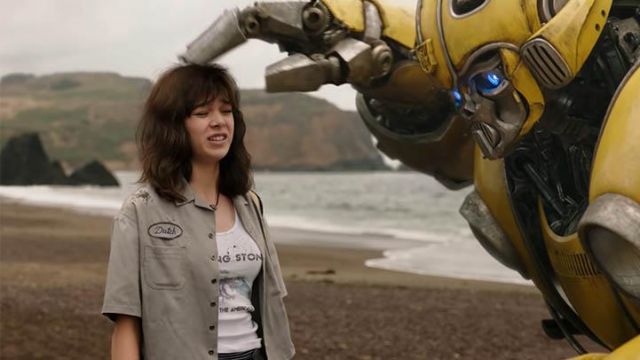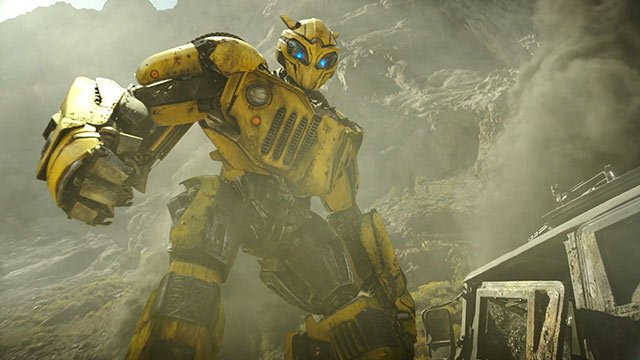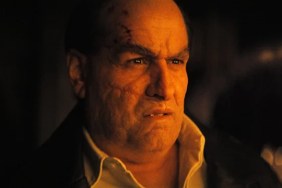The Transformers franchise is one of the most indelible properties of its time. The series was created in 1984 as a toy line that quickly mutated into a multimedia juggernaut. It encompasses comic books, animation, video games, and movies. There simply aren’t many franchises that can boast such a multi-generational appeal. Transformers as a whole has managed to stay relevant, but the live-action films are often looked down upon. After a decent start with 2007’s Transformers, the franchise has endured several increasingly dire sequels. Culminating with 2017’s The Last Knight, the franchise hit an all time low with the worst box office returns on a movie that had the highest budget of the series.
As a result, the expected sixth installment was put on hold, casting doubt over the future of the live-action films. Via Boxofficepro, projections for Bumblebee –– the first spinoff in the franchise –– suggest that the 80’s-set film will open around $22 million, behind Aquaman and Mary Poppins Returns. To be fair, there’s a good chance that these numbers could possibly rise when it hits theaters on Friday, December 21. But with initial numbers this low, it naturally begs a very important question: Can a Transformers spinoff succeed when the primary films are floundering?

On a macro level, the Transformers movies have grown increasingly stale. Even though Travis Knight provides a fresh face in the director’s chair, Bumblebee still carries the stench of Michael Bay’s previous films. Overall, the marketing has done a valiant job presenting Knight’s perspective as a fresh take on the franchise. The sad part about these initial numbers is that Bumblebee actually looks like a step in the right direction, tonally speaking. Bay’s style is so ingrained with Transformers that it’s hard to disassociate the director from these movies. It’s not his name –– but rather his bombastic style –– that average moviegoers so strongly associate with the Transformers. Bay is still a producer on this film. And even viewers who doesn’t know Bay’s name will naturally associate these movies with explosions, car chases, and mindless action.
Can Bumblebee change those perceptions? While the early critical response has been positive, Bumblebee feels like the first and last vestige of the now defunct Transformers “brain trust.” Back in 2015, it was revealed that Akiva Goldsman was commissioned to establish a so-called “Transformers cinematic universe”. This was rumored (but never confirmed) to include a number of up and coming writers, sprinkled with seasoned veterans. The purpose of the brain trust was to incubate new ideas for the franchise, ultimately yielding 14 potential stories – at least according to Bay. Christina Hodson’s script for Bumblebee was a byproduct of this writer’s room. But so was The Last Knight, and we all know how that turned out.

Bumblebee has more immediate hurdles to overcome. Knight and his cast are largely unproven when it comes to big budget franchises. Although Knight’s debut with Kubo and the Two Strings proved to be enough to get him this job, he doesn’t necessarily bring a ton of box office clout to the project. Moreover, the cast also doesn’t have a lot of name recognition. Hailee Steinfeld and John Cena are admirable casting choices, but the majority of the cast doesn’t come close to their profiles. Angela Bassett and Justin Theroux certainly add a bit of juice to the film’s box office potential, but those performers aren’t necessarily draws unto themselves.
Despite the lack of a recognizable cast, questions remain about the box office viability of Bumblebee, especially given the December release date. Historically speaking, the Transformers movies have been released as big summer movies. Fans have been conditioned to expect these films at a certain time of the year, so this works against Bumblebee’s chances. Holiday release windows always provide tough competition, but this year is set to be an absolute bloodbath. Aquaman and Mary Poppins Returns share a date with Bumblebee, and both films are expected to outdraw it. There are also some strong holdovers, including Spider-Man: Into the Spider-Verse, which ironically also features Steinfeld as the voice of Spider-Gwen. Each of those films will leach away viewers from Bumblebee like a rogue Insecticon.

The smart move here would have been for Paramount to push Bumblebee to a less crowded release window. But it’s too late now. By staying the course, Paramount has potentially set up Bumblebee for failure. If recent history is any indication, releasing a spinoff movie of a beloved franchise in an unusual release window might not be the best move. As Disney learned the hard way with Solo, franchise fatigue is all too real. Although they have entirely different circumstances, Solo and Bumblebee are actually pretty similar in terms of audience appeal.
Paramount should be very concerned about the current perception of the Transformers movies. Based on everything we know so far, the studio has done everything in its power to change those perceptions. Bumblebee appears to be far more character driven than any of the previous installments. If the film ends up being good and it has legs into January, Bumblebee may very well be the shot of adrenaline that the Transformers badly needs. It’s amazing to see a franchise with such a devoted fan base that has failed to engage its core audience. Six films into the cinematic franchise, the Transformers franchise getting dangerously close to burnout. Getting the fans back on board was already going to be an uphill battle. But in this particular month, it may prove to be impossible for Bumblebee to right the ship.
Do you think Bumblebee will save the Transformers franchise? Transform and roll out to the comment section below!




